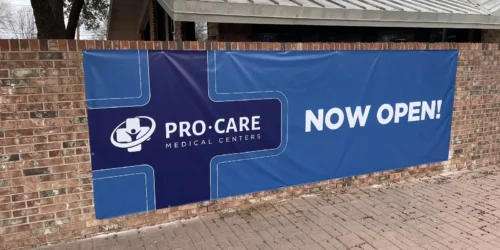Given that car accidents are so common, it is no surprise that injuries originating from car accidents are common as well. In fact, over 2.5 million car accident injuries occurred in 2019 alone. Many of these injuries caused soft tissue damage. Soft tissue injuries occur the most often of any form of car accident injury.
If you’re wondering, “What are soft tissue injuries?” then you might want to know that the soft tissues refer to the tissues that connect and support your organs. This includes muscles, tendons, ligaments, blood vessels, and nerves.
After reading about the different kinds of soft tissue injuries below, you may believe that you have sustained a soft tissue injury during a car accident. If so, be sure to visit the car accident doctors at ProCare to jumpstart your treatment plan.
1. Rotator Cuff Tear
Your rotator cuff is made up of the muscles and tendons surrounding the joint in your shoulder. Rotator cuff injuries like tears to this connective tissue may be partial or complete. You may experience this in a car accident if your seatbelt pulls at your shoulder or sternum, for example. Symptoms include:
- Pain radiating down from the shoulder
- Reduced range of motion that prevents you from raising your arm
- Pronounced weakness
- Inability to lift objects
- A popping sound when you move your shoulder
2. ACL Tear
Your anterior cruciate ligament, or your ACL as it is commonly known, is made up of the bands of tissue connecting your femur to your tibia. Injuries to this area will affect your knee. Soft tissue injuries to the ACL, including partial or complete tears, are more likely to happen to women or to people who play sports. You should seek care for a potential ACL tear if, after experiencing a car accident, you have any of the following symptoms:
- Swollen knee
- Instability when standing or walking
- Reduced range of motion in your knee
- Difficulty walking
- Severe pain in your knee
- A sound like a pop or crack at the time of the incident
3. Contusions (Bruises)
The medical term for what is commonly known as a bruise is contusion. A contusion can occur in any part of your body that has muscles and connective tissue. This means that while you may have minor, everyday bruising in an extremity, you can also experience contusions in your heart or brain. Seek medical support immediately if you are experiencing pain in those areas. You will also want to seek medical help if you have a large contusion or if the contusion doesn’t go away on its own.
4. Sprains
A common injury for childhood athletes, this relatively harmless form of soft tissue injury is nevertheless a pain to deal with. It is defined as a tear to a ligament, and the most common area of injury is the ankle. Usually, sprains are accompanied by bruises, pain, and swelling. The best treatment for a sprain is to employ the RICE method: rest, elevation, compression, and elevation. If, after sustaining a sprain, you begin to feel numb in the affected area or can no longer bear weight on it, then contact a doctor.
5. Tendinitis
Tendinitis is inflammation of your tendon. This injury becomes more common as you age due to the natural stiffening of your tendons over time. It usually causes pain at or around your joint, especially when you move it. It can also cause swelling. Tendinitis can certainly occur during car accidents, but you will be more at risk if you are someone who makes repetitive motions – for example, a tennis player who needs their elbows to serve or a gardener who spends long hours crouching in the garden.
6. Bursitis
A bursa is a sac of fluid that serves as a cushion between different tissues in your body. You have bursae anywhere your tendons meet your joints within your body. Bursitis is, then, inflammation of bursae. It is a temporary condition that, nonetheless, can feel very painful. Injury and overuse are the most common causes of bursitis. If you are experiencing bursitis, you may have the following symptoms:
- Pain in or near your joints
- Tenderness local to your joints
- Limited range of motion
- Swelling and redness for the bursae closer to the surface of the skin
7. Concussion
Concussions, which occur when there is a blow to the head, occur in about one of sixty people involved in accidents where cars can be towed away. While concussions are usually not life-threatening, they can still cause significant negative effects in your everyday life. If you sustain a concussion, you may have an intense feeling of pain or pressure, nausea or vomiting, problems with balance, light or noise sensitivity, fatigue or grogginess, memory issues, and even brief loss of consciousness. There are important danger signs for concussions that require immediate medical attention, including severe drowsiness, unequal pupil dilation, convulsions or seizures, and increased agitation.
The good news is that chances of concussion from a car accident can be significantly reduced – almost 70% – with regular seat belt use.
8. Muscle Strain
Any minor injury to a muscle or tendon is known as a strain. These often occur in the lower back or in the hamstrings. You may experience swelling, tenderness, or pain in the affected area, reduced motion, and muscle weakness. Like sprains, the best course of treatment for these injuries is RICE: rest, ice, compression, and elevation.
9. Whiplash
Whiplash is a neck injury when there is a forceful movement of the neck. It can occur in car accidents at any speed and at any level of impact. The chances of whiplash rise when you are over the age of 50 and continue to increase in likelihood as you grow older. You may experience whiplash if you have noticed neck pain and stiffness, pain that is intensified by the movement of the neck, headaches, decreased range of neck motion, tingling or numbness in the shoulder or arms, and fatigue or dizziness.
10. Other
You have many different tissues in your body that are recognized as soft tissues. Depending on the severity of the car accident you experience, you may experience injuries to any of these tissues. If you are feeling new pain or other symptoms after a car accident, seek medical help, as you may have experienced a soft tissue injury.
References
- NHTSA 2019 Crash Fatality Data
- Mayo Clinic – Rotator Cuff Injury Causes and Symptoms
- Mayo Clinic – Sprains Causes and Symptoms
- NIH – Tendinitis



